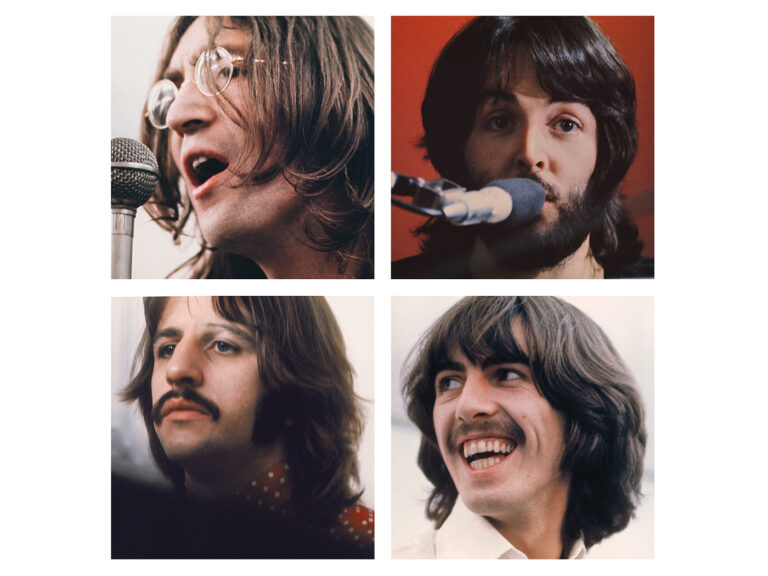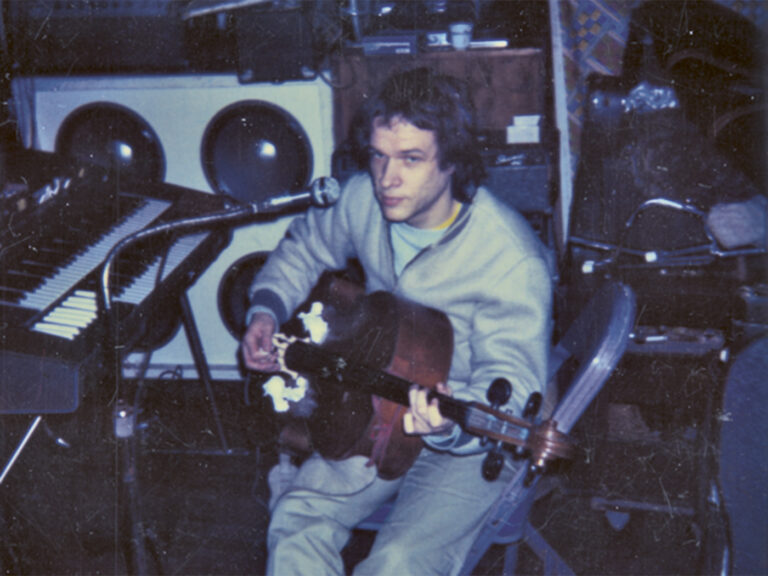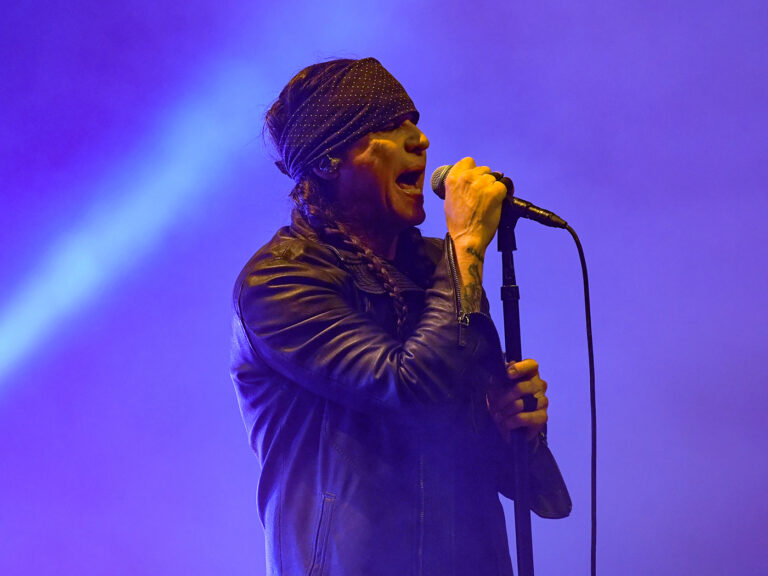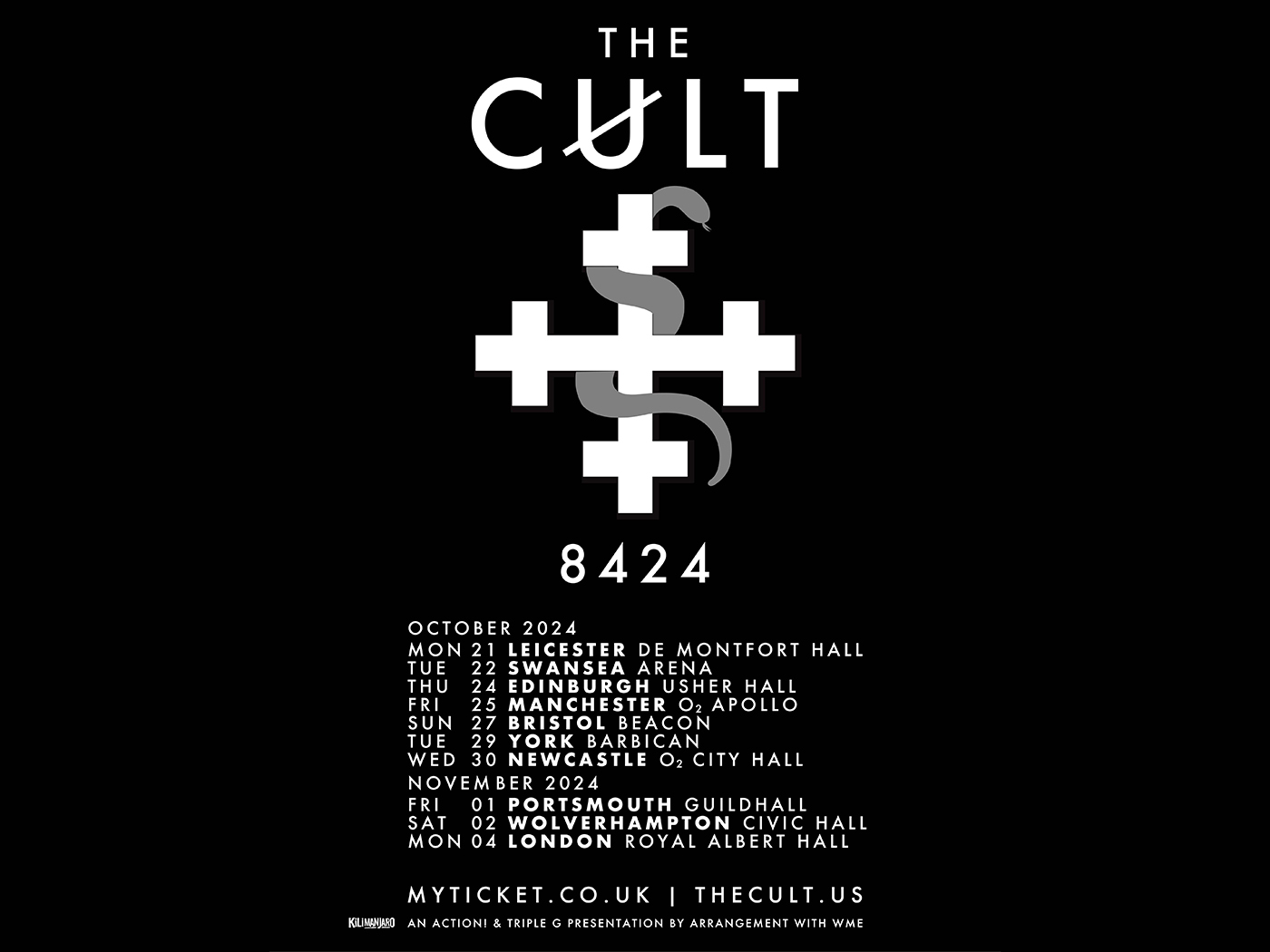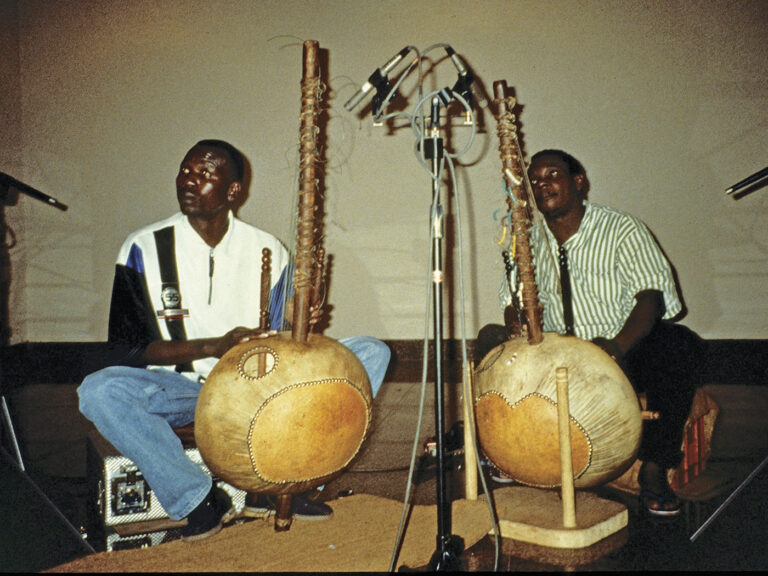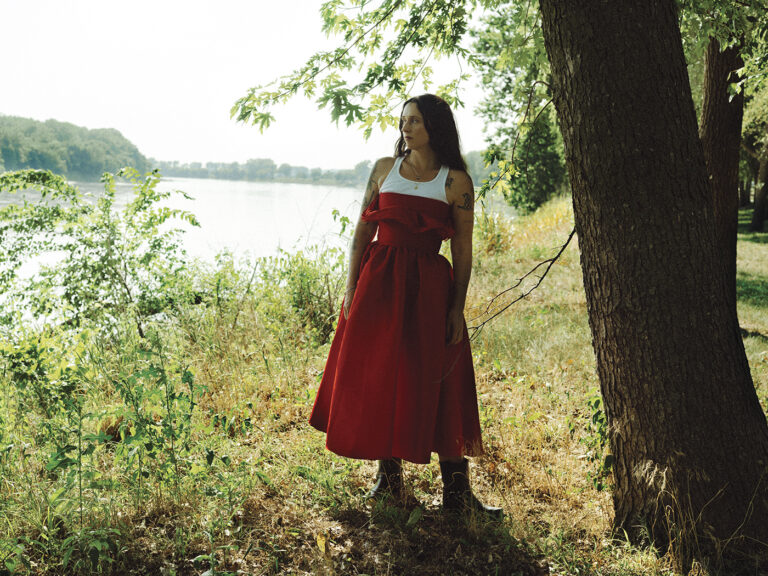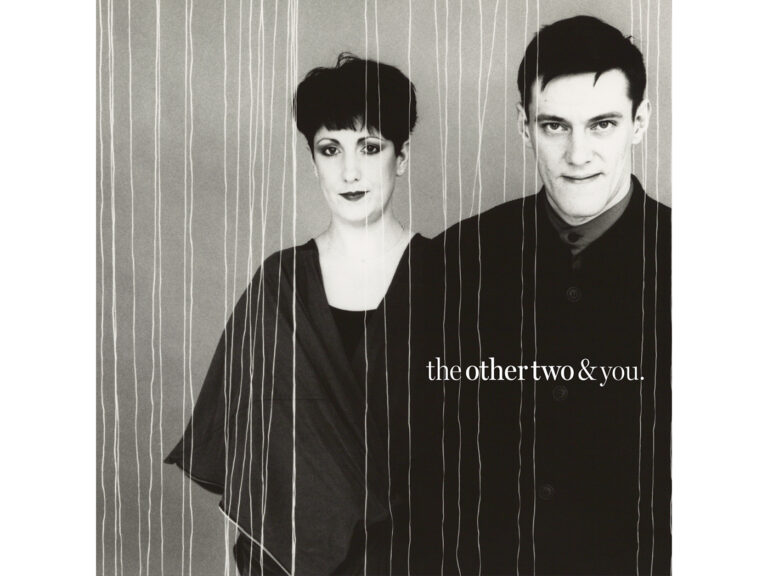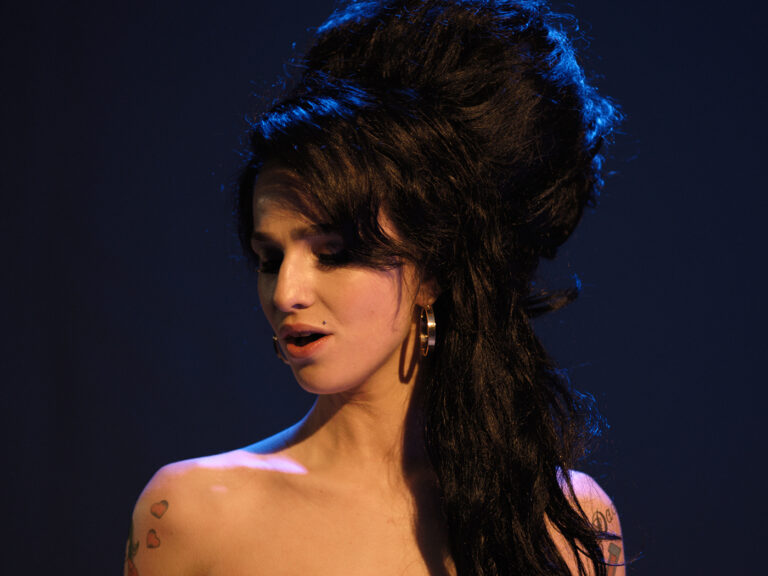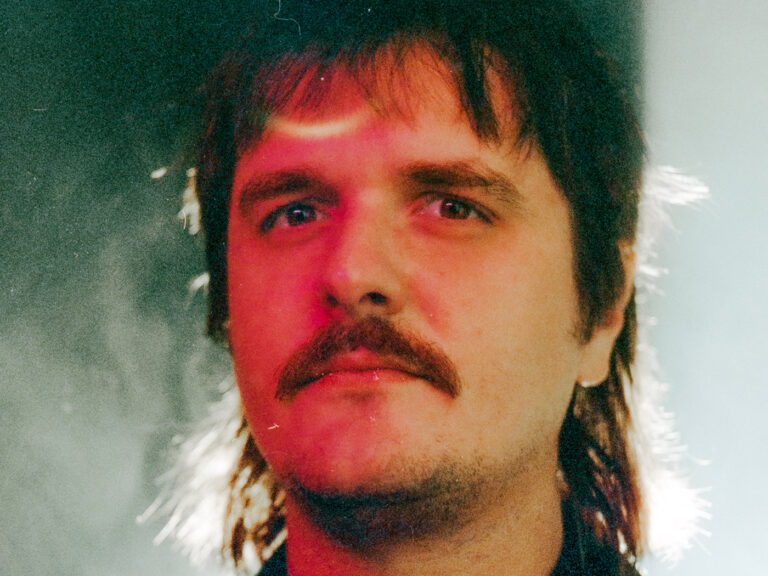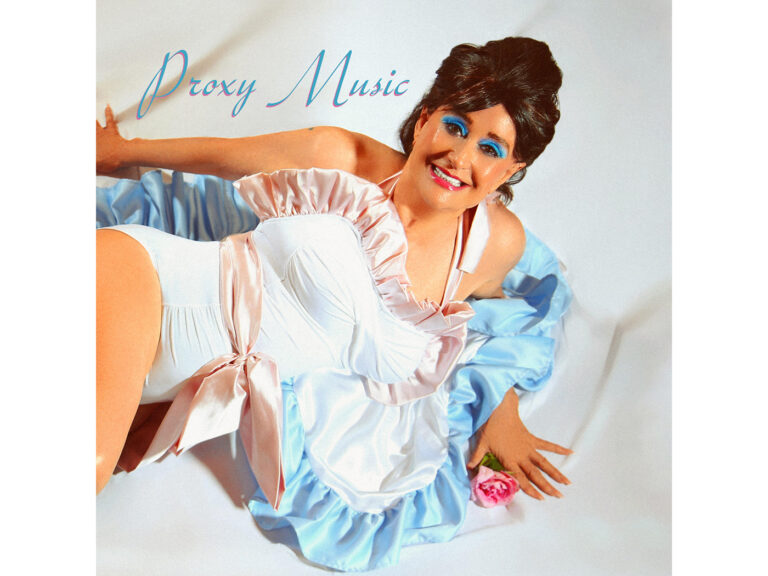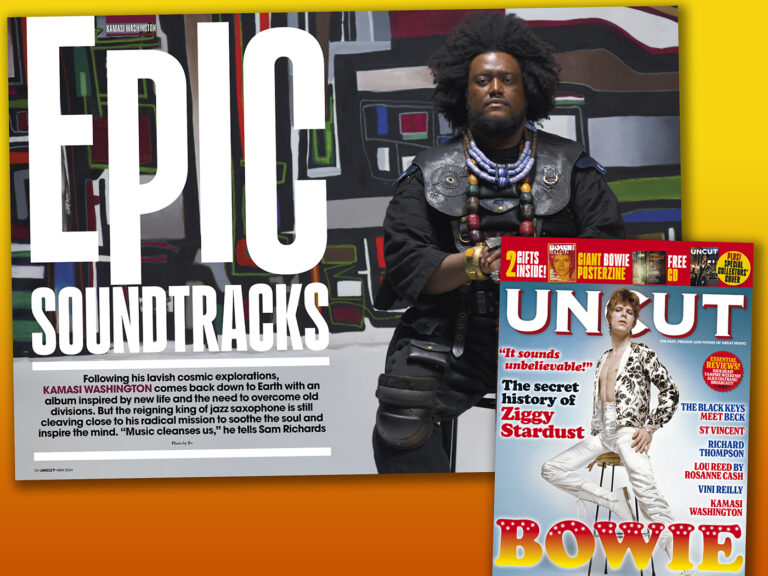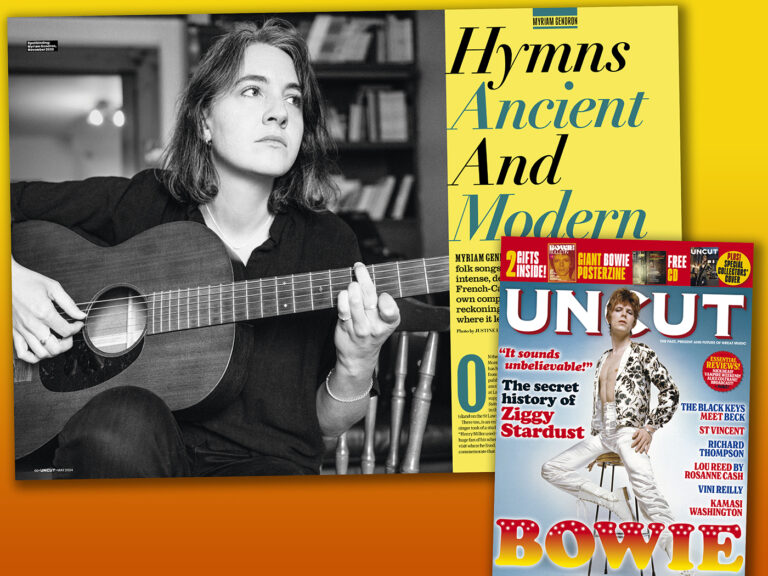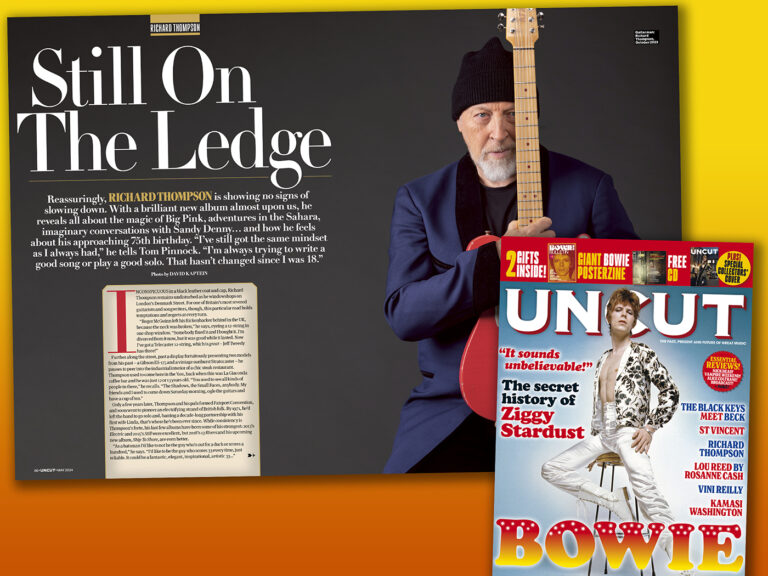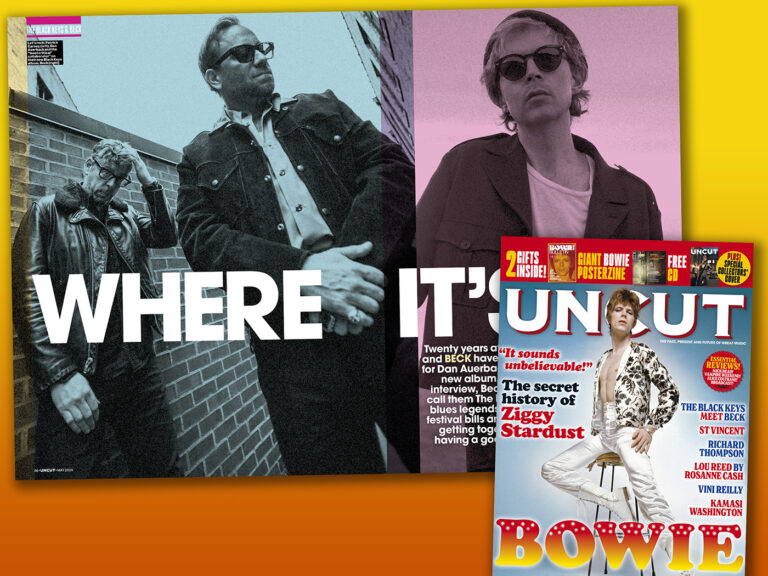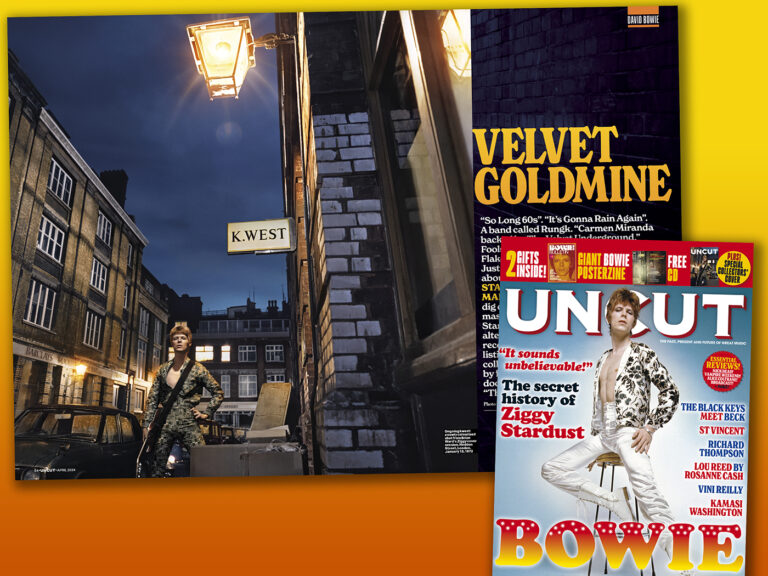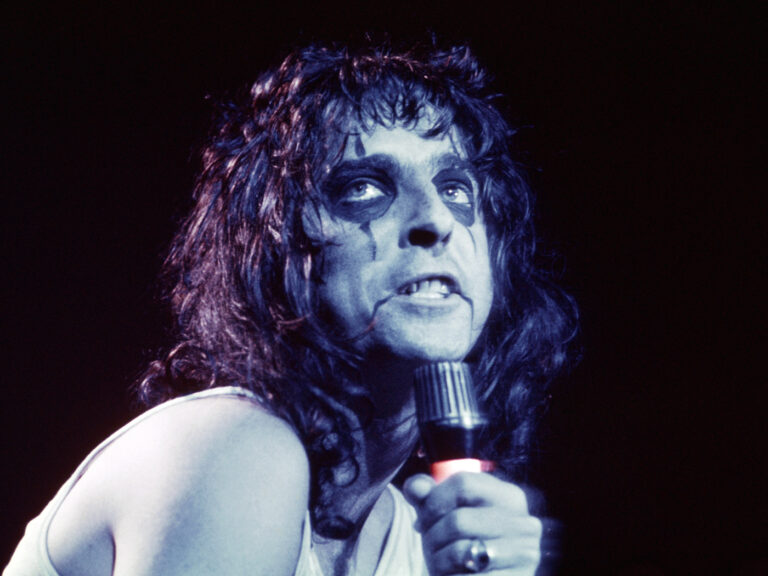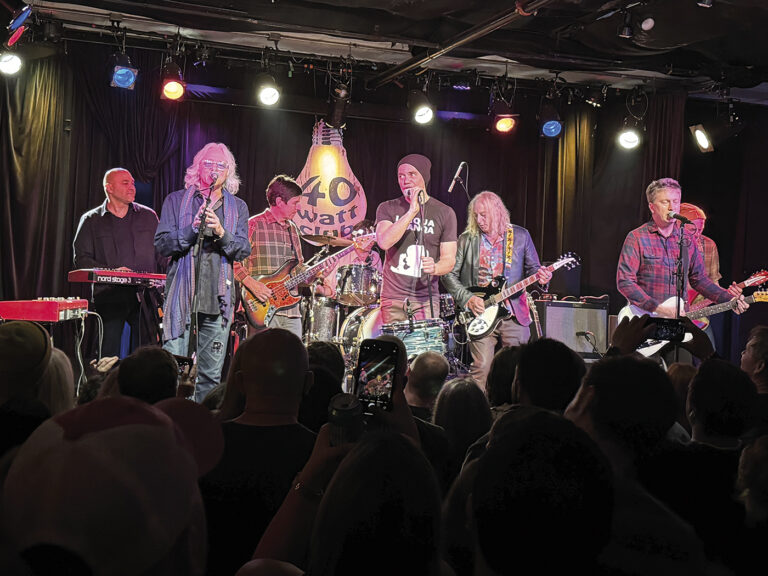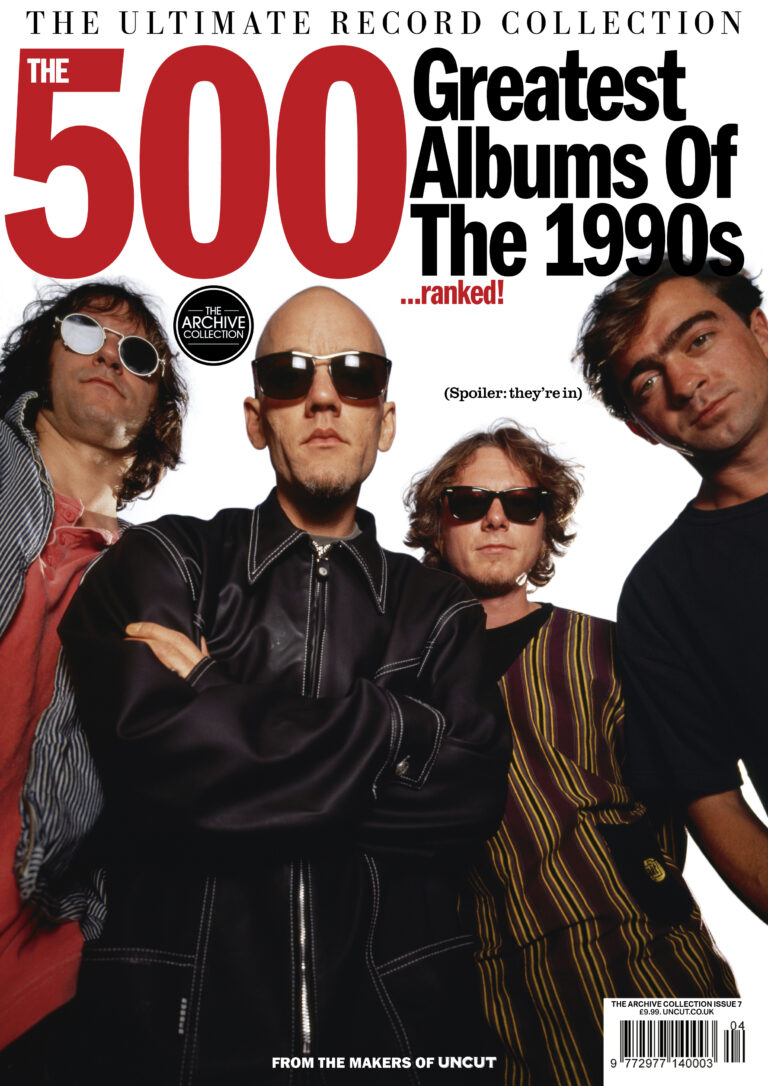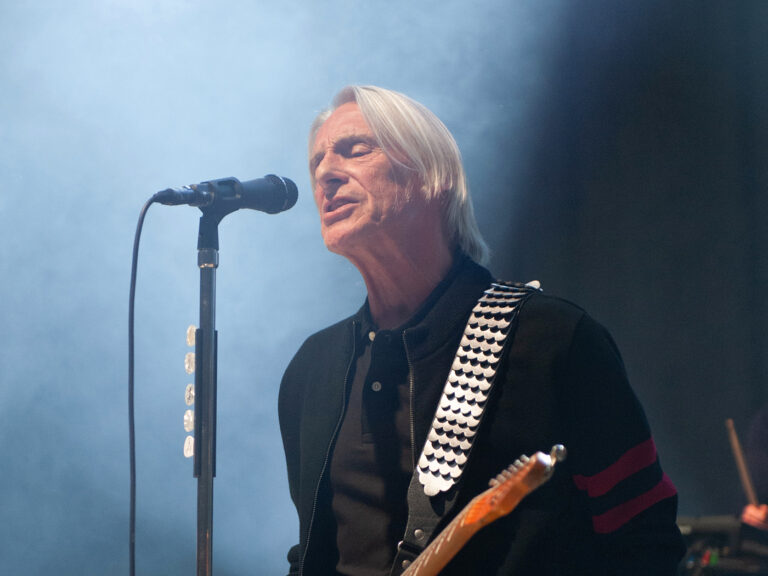In this month’s Uncut, we speak to Richard Thompson about his brilliant new album, the magic of Big Pink, adventures in the Sahara and imaginary conversations with Sandy Denny.
Now read on for an extract from our interview…
DAVID BOWIE IS ON THE COVER OF THE LATEST UNCUT – ORDER YOUR COPY HERE
Inconspicuous in a black leather coat and cap, Richard Thompson remains undisturbed as he windowshops on London’s Denmark Street. For one of Britain’s most revered guitarists and songwriters, though, this particular road holds temptations and regrets at every turn.
“Roger McGuinn left his Rickenbacker behind in the UK, because the neck was broken,” he says, eyeing a 12-string in one shop window. “Somebody fixed it and I bought it. I’m divorced from it now, but it was good while it lasted. Now I’ve got a Telecaster 12-string, which is great – Jeff Tweedy has three!”
Further along the street, past a display fortuitously presenting two models from his past – a Gibson ES-175 and a vintage sunburst Stratocaster – he pauses to peer into the industrial interior of a chic steak restaurant. Thompson used to come here in the ’60s, back when this was La Gioconda coffee bar and he was just 12 or 13 years old. “You used to see all kinds of people in there,” he recalls. “The Shadows, the Small Faces, anybody. My friends and I used to come down Saturday morning, ogle the guitars and have a cup of tea.”
Only a few years later, Thompson and his pals formed Fairport Convention, and soon went to pioneer an electrifying strand of British folk. By 1971, he’d left the band to go solo and, barring a decade-long partnership with his first wife Linda, that’s where he’s been ever since. While consistency is Thompson’s forte, his last few albums have been some of his strongest: 2013’s Electric and 2015’s Still were excellent, but 2018’s 13 Rivers and his upcoming new album, Ship To Shore, are even better.
“As a batsman I’d like to not be the guy who’s out for a duck or scores a hundred,” he says. “I’d like to be the guy who scores 33 every time, just reliable. It could be a fantastic, elegant, inspirational, artistic 33…”
He turns 75 in April, but to many Thompson remains the gangly teenager of Fairport fame, a prodigy whose first song was, quite bafflingly, the immortal “Meet On The Ledge”. For his part, he seems happy to be forever associated with the group he left over 50 years ago: next year he’ll quite literally be unable to escape his past when he co-headlines a week-long Adriatic cruise with the current line-up of Fairport.
Strolling down Tottenham Court Road, we pass by Watkins, long-time purveyors of arcane and antiquarian books. It was here that Thompson started the spiritual journey that led him to embrace the mystical form of Islam known as Sufism. “I was working my way through the bookshelf from A for anthroposophy and B for Blavatsky, all the way to Z for zen,” he says inside the hushed shop, placing a book of English folktales back on the shelf. “But I stopped at the Sufis. I thought they were my sort of thing, a philosophical, spiritual path – they seemed to be people who had the knowledge, now. As I formed that thought they arrived on my doorstep, there was a meeting a few hundred yards from my house in Belsize Park. I’ve been there ever since.”
We reach our destination, a Covent Garden bistro blasting out a variety of retro tunes that please Thompson no end, including Peggy Lee’s “I’m A Woman” and a version of Earl Hagen’s “Harlem Nocturne”.
“I’ve still got the same mindset as I always had,” he explains over a steaming cup of sencha tea. “I’m always trying to write a good song or play a good solo. That hasn’t changed since I was 18.”
UNCUT: You recorded Ship To Shore while you were living in Woodstock. How did you find it up there?
RICHARD THOMPSON: I think we missed the vibe by 60 years. It’s a bit touristy now, every other shop has a case of crystals. I wanted to get out of New Jersey because it was a bit dull. I didn’t want to go back to the West Coast because New Jersey’s so convenient for popping over to Europe. I thought of Woodstock, because there’s a musical community up there. It’s beautiful up there in the Catskills, really lovely. We visited the basement at Big Pink – there’s an energy there, definitely, the sound molecules have altered the room somehow.
Talking of Woodstock, weren’t you asked to join The Band once?
Twice! I think when Robbie left I got asked, and then again in the ’80s just before the Cate brothers joined. At that point they were really dysfunctional as human beings, Rick and Richard were serious partygoers, I wouldn’t have fitted in and it would have been a hobby rather than my musical goal. Once you get to call the shots, you kind of get used to it.
If you’re making some of your best work over the last decade, you’re not alone – Bob Dylan, Paul Simon and more are on top form recently.
I’m interested to hear the Paul Simon record, it really sounds like divine inspiration the way he described it, like it came from outside of him. Dylan’s made some amazing records lately. It’s totally uncharted territory. As a folkie – I’ll call myself that for temporary convenience – you’re more used to going to a folk festival and them digging out some old fisherman or farmer, but in pop music you’re supposed to have gone by 25. What they call rock music is weird in that way, that the boomer generation of musicians found they still had an audience so they kept going, for better, for worse. I prefer the parallels with someone like David Hockney or my favourite artist Gillian Ayres, she was working every day in the studio in her eighties – perhaps those should be the role models for the ageing boomer musicians?
Read the full feature only in the latest edition of Uncut – in shops now and available to buy direct from us here
Ship To Shore is released by New West Records on May 31 and can be pre-ordered here


